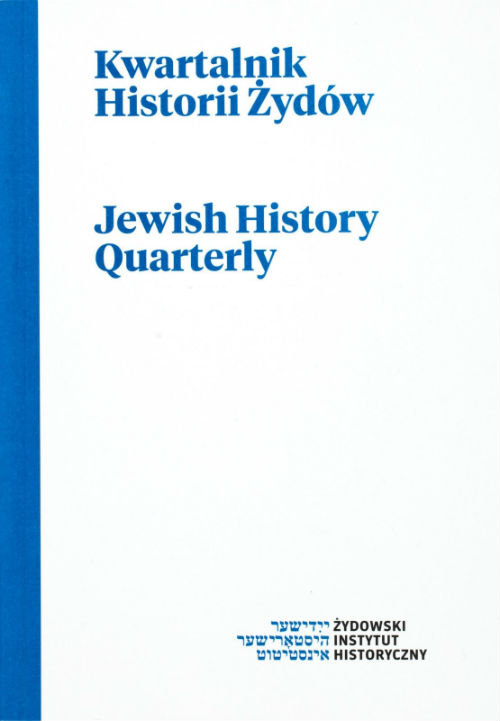Caspar Pietersen Steen – A Christian Printer in Amsterdam at the Turn of the 17th and 18th Centuries Commissioned by Polish Jews
Caspar Pietersen Steen – A Christian Printer in Amsterdam at the Turn of the 17th and 18th Centuries Commissioned by Polish Jews
Author(s): Magdalena BendowskaSubject(s): History
Published by: Żydowski Instytut Historyczny
Keywords: Caspar Steen; old Hebrew and Yiddish prints; Amsterdam printing shops; cabalistic prints.
Summary/Abstract: By the late 17th century, as there were no printing houses in Poland that would print books written in Hebrew or Yiddish, such books and prints were imported, chiefly from Amsterdam. One printer who worked exclusively for the Polish market was Caspar Steen (1643-1703). He only printed for Ashkenazim and did not maintain any relations with the Sephardic community in Amsterdam. He also happened to be the only Christian printer in Amsterdam who had his own printing house engaging exclusively in the printing of Jewish books. He started as a bookbinder and as such he became a member of the Amsterdam Book Guild in 1670. He also cooperated with other Amsterdam printers as an investor: he co-financed the printing of a prayer book based on Polish rites, printed by Mosze ben Awraham Awinu. In 1692 Caspar Steen started his own printing business. In order to cut manufacturing costs, he printed books of small size and using very small fonts. As his books were chiefly destined for the Polish market, he published mainly the works by Polish Jews or classic texts with commentary by Jewish scholars born in Poland. Four of the titles were connected with the Kabbalah (Zot Tora, Segulot u-refuot, Paneach raza, Sefer meulefet sapirim). The popular works included: Ejn Israel, Masaot szel rabi Binjamin, Cene u-rene and Sefer ha-magid. The books produced in Steen’s printing house were largely financed and published by Polish Jews. Out of the 13 works published by Steen, no fewer than eight contained rabbinical approbations. In six, and haskamas from Polish rabbis were printed. When Caspar Steen died, his family closed down the print shop but his widow was still selling books and engaged in bookbinding services.
Journal: Kwartalnik Historii Żydów
- Issue Year: 251/2014
- Issue No: 03
- Page Range: 485-495
- Page Count: 11
- Language: English

